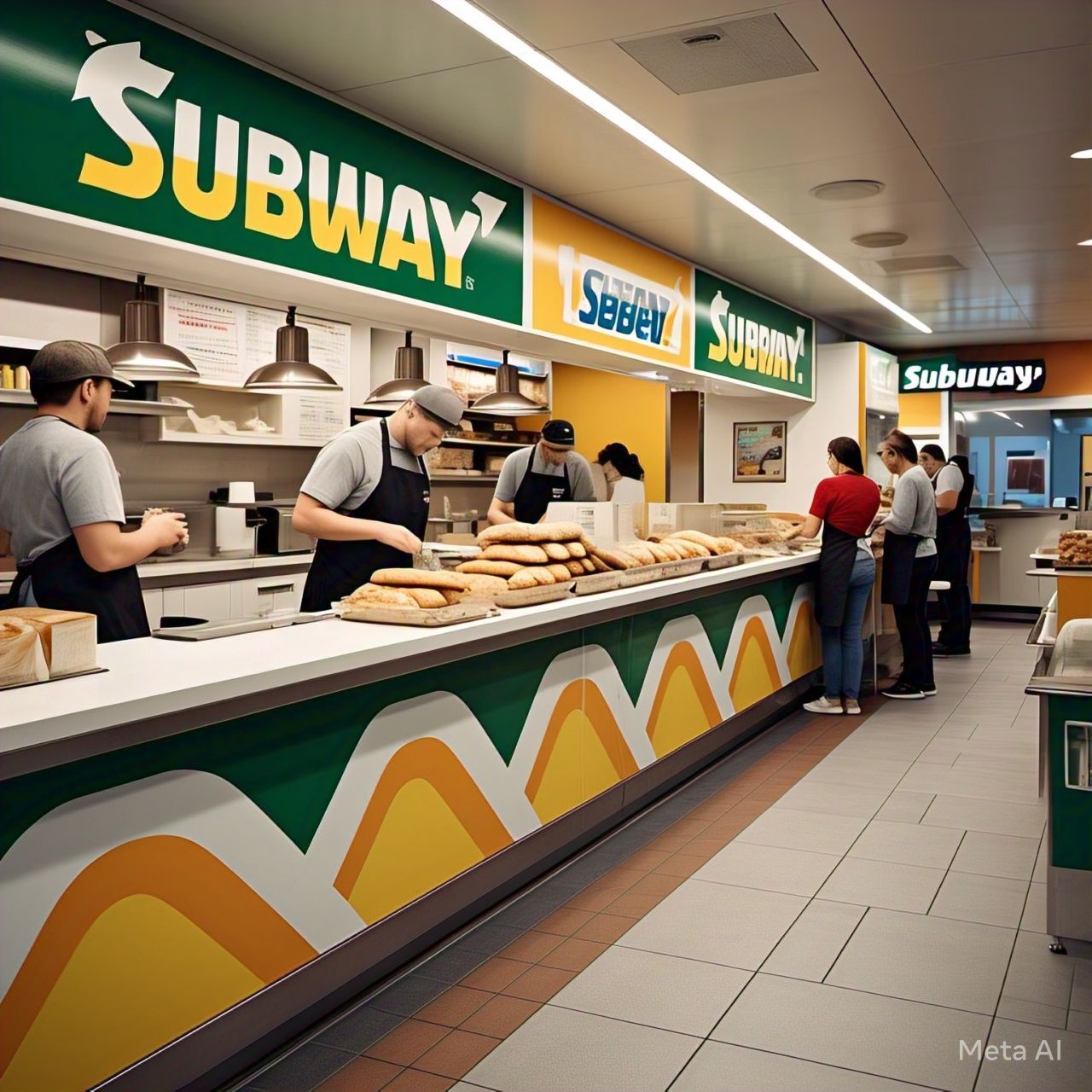The Franchise SME Business Model
The Franchise SME Business Model is one of the most popular and effective ways for entrepreneurs to start a business with a proven system, brand recognition, and support from an established company. This model allows individuals (franchisees) to operate a business using the brand, systems, and operating procedures developed by another company (the franchisor). In exchange for an initial franchise fee and ongoing royalties, franchisees gain access to training, marketing support, and a ready-made business framework.
Defining the Franchise SME Business Model
Defining the Franchise SME Business Model
The Franchise SME Business Model is a partnership between a franchisor (the brand owner) and a franchisee (the business operator).
It is a structured approach where an entrepreneur (franchisee) acquires the rights to use the franchisor’s trademark, operate a business using an established brand, its operational systems, and support framework developed by another entity (franchisor).
In return, the franchisee pays an initial franchise fee and ongoing royalties. This model allows small and medium enterprises (SMEs) to operate under a well-known brand, benefiting from established consumer trust, operational efficiencies, and industry expertise.
This model is particularly appealing to SMEs because it reduces the risks associated with starting a business from scratch.
Franchising spans various industries, including food and beverage (KFC, McDonald's), retail (7-Eleven, PostNet), health and fitness (Anytime Fitness, Curves), automotive services (Midas, Jiffy Lube), and professional services (TaxAssist, Express Employment Professionals). SMEs can either buy into a franchise or develop their own business into a franchisable model.
Franchising is a win-win arrangement; the franchisor expands its brand presence without significant capital investment, while the franchisee benefits from a proven business model and ongoing support. For SMEs, this model offers a structured pathway to entrepreneurship, making it easier to navigate the complexities of running a business.
Key characteristics include:
Established Brand – Franchisees benefit from the established brand reputation, customer loyalty, and marketing power of the franchisor.
Proven Business Model – They operate under a proven and tested business model that has been successfully implemented by other franchisees.
Ongoing Support – Franchisors typically provide ongoing support to franchisees, including training, marketing assistance, and operational guidance.

Entry-Level Expertise Requirements
Entry-Level Expertise Requirements
One of the key advantages of the Franchise SME Business Model is that it does not require extensive prior experience in the industry. Franchisors provide comprehensive training programs to equip franchisees with the necessary skills and knowledge. For example:
Food and beverage franchise opportunities like KFC or Domino’s Pizza offer training in food preparation, customer service, and inventory management.
Health and fitness franchise options like Planet Fitness provide training in gym operations and member engagement.
Cleaning and maintenance franchise models like Molly Maid teach franchisees how to manage cleaning teams and client relationships.
While prior business experience can be helpful, the franchisor’s training programs are designed to ensure that even first-time business owners can succeed.
Starting a franchise does not always require extensive industry experience, however, it still requires some basic skills, like:
Business Acumen – Strong business skills, including financial management, marketing, and client centricity, are essential for a successful franchise operation.
Entrepreneurial Spirit – A strong work ethic, a willingness to take risks, and a commitment to achieving success.
Leadership and team management – Managing employees within the franchise framework.
Understanding franchise agreements – Familiarity with contracts, licensing, and franchise fees.
Customer service skills – Strong customer relations and service excellence.
Marketing and sales knowledge – Local brand promotion and community engagement.

Standard Regulations Applicable
Standard Regulations Applicable
Franchising is a highly regulated business model, with specific legal requirements that vary by country. Key regulations include:
Franchise Disclosure Document (FDD) – In many countries, franchisors are required to provide an FDD to prospective franchisees. This document outlines the franchisor’s financial performance, fees, and legal obligations.
Franchise Agreement – A legally binding contract that outlines the terms and conditions of the franchise relationship, including the duration of the franchise, territorial rights, termination clauses, franchise fees, royalties, and the obligations of both the franchisor and the franchisee.
Consumer Protection Laws – Ensuring franchisees receive accurate information before investing.
Trademark and Brand Protection – Legal use of the franchisor’s intellectual property.
Compliance with Local Laws – Franchisees must adhere to local business regulations, including licensing, zoning, and labour laws.
Regulations vary by country. In South Africa, franchises operate under the Consumer Protection Act (CPA), while in the U.S., the Federal Trade Commission (FTC) regulates franchise operations.
Understanding these regulations that are applicable to your country of operation is critical for franchisees to avoid legal pitfalls and ensure compliance.
Policies, Processes, and Procedures Framework requirements
Policies, Processes, and Procedures Framework requirements
Franchisors provide franchisees with a detailed operations manual that outlines the policies, processes, and procedures required to run the business. Franchises operate under strict Standard Operating Procedures (SOPs) to maintain brand consistency across all franchise locations, which is essential for maintaining brand integrity.
Key components include:
Standard Operating Procedures (SOPs) – Step-by-step instructions for daily operations, from opening and closing procedures to customer service protocols.
Operational policies – Guidelines for product/service delivery, customer service, and compliance.
Financial policies – Cost structures, reporting, and franchisee financial responsibilities.
HR policies – Employee hiring, training, and management procedures.
Customer Service Standards – Providing excellent customer service to maintain brand reputation and customer loyalty.
Inventory Management – Implementing effective inventory management systems to ensure adequate stock levels and minimize waste.
Marketing policies – Approved advertising, promotional campaigns, and digital marketing strategies.
Supply chain management – Sourcing, inventory management, and supplier agreements.
Quality Control Measures – Guidelines for maintaining product or service quality, such as food safety standards in food and beverage franchise opportunities.
Reporting Requirements – Franchisees are often required to submit regular reports on sales, inventory, and other key metrics.
Following these structured frameworks minimizes guesswork and helps franchisees operate efficiently and ensures consistency across all franchise locations.
Technology and Automation requirements
Technology and Automation requirements
Technology plays a crucial role in the success of modern franchise businesses. Franchisors often provide franchisees with access to proprietary software and tools to streamline operations.
With Industry 4.0 advancements, AI-driven analytics, chatbots, and automation are transforming franchise operations.
Some technology and automation examples include:
Point-of-Sale (POS) Systems – Used in retail franchise opportunities to manage sales, inventory, and customer data.
Customer Relationship Management (CRM) Software – Helps franchisees track and manage customer interactions, improves service delivery and loyalty program engagements.
Automated Inventory Management – Ensuring efficient stock control.
Cloud-Based Business Operations Software – Managing HR, finance, and compliance remotely.
Online Ordering and Delivery – Leveraging online platforms for online ordering, delivery, and customer service.
Digital Marketing and E-Commerce Platforms – Implementing digital marketing strategies, such as search engine optimization (SEO) and pay-per-click (PPC) advertising.
Automated Marketing Tools – Platforms for managing social media campaigns, email marketing, and online advertising.
By leveraging technology, franchisees can enhance efficiency, improve customer experiences, and stay competitive.

Key Roles and Responsibilities (People) requirements
Key Roles and Responsibilities (People) requirements
Running a franchise requires a team effort. Like any other business, a well-staffed team that has sufficiently trained and competent team members is absolutely crucial for the success of a franchise operation.
Some key roles and responsibilities include:
Franchise Owner (Franchisee) – Manages operations, ensures brand compliance, and oversees finances.
Franchise Owner/Manager – Oversees daily operations, manages staff, and ensures compliance with franchisor standards.
Staff Members – Providing customer service, preparing and serving products, maintaining the franchise location and performing other operational tasks.
Marketing and Sales Team – Drives local promotions and brand awareness.
Customer Service Representatives – Ensures quality service and client satisfaction.
Financial and Compliance Team – Oversees bookkeeping, reporting, and legal compliance.
Franchisor Support Team – Provides training, marketing assistance, and ongoing guidance.
Effective leadership and team management are critical for franchise success. Franchisees must also foster a positive workplace culture to retain employees and deliver exceptional customer service.

Overall Costs and funding requirements
Overall Costs and funding requirements
Starting a franchise requires significant investment.
Starting a franchise involves several costs, including:
Initial Franchise Fee – This one-time fee grants the franchisee the right to use the brand and systems. It can range from a few thousand dollars to hundreds of thousands, depending on the brand.
Ongoing Royalties – Typically a percentage of monthly revenue, paid to the franchisor for continued support and brand usage.
Startup Costs includes expenses for equipment, inventory, real estate, and marketing:
Equipment Costs – Investment in equipment, furniture, fixtures, and other necessary equipment.
Inventory Costs – Costs associated with purchasing initial inventory and supplies.
Location Costs – Costs associated with securing and setting up the franchise location (rent, leasehold improvements).
Marketing Fees – Contributions to national and local advertising campaigns.
Working Capital – Funds required to cover initial operating expenses such as payroll, rent, supplies, utilities, marketing and insurance, until the business becomes profitable.
Franchisees can explore various funding options, such as personal savings, bank loans, government grants, SME financing programs, Private Investors or franchisor financing programs to cover some, or all of the costs highlighted above.

Benefits of the Franchise SME Business Model
Benefits of the Franchise SME Business Model
The Franchise SME Business Model offers numerous advantages, including:
Proven Business Model – Franchisees benefit from a system that has already been tested and refined by other franchisees. Statistics show lower failure rates compared to independent startups.
Established Brand Recognition – Operating under a well-known brand attracts customers faster due to the reputation and customer loyalty of the franchisor, builds trust and reduces startup risk.
Training and Support – Franchisors provide guidance on operations, ongoing assistance on marketing and management, reducing the learning curve for franchisees.
Economies of Scale – Franchisees can leverage the bulk purchasing power of the franchisor to reduce costs.
Marketing and Advertising Support – National and local-level brand promotion.
Faster ROI – Stronger revenue potential due to existing customer trust.
Easier Access to Funding – Lenders prefer financing franchises due to lower risk.
Opportunities for Growth – Potential for growth through expanding to multiple franchise locations.
Challenges of the Franchise SME Business Model
Challenges of the Franchise SME Business Model
Despite its advantages, franchising also presents challenges, such as:
High Initial Costs – The capital-intensive upfront investment can be a barrier for many entrepreneurs.
Limited Autonomy – Franchisees must adhere to the franchisor’s rules and guidelines, which can restrict creativity.
Adherence to Brand Standards – Strict adherence to brand standards can limit flexibility and creativity.
Ongoing Fees – Royalties and marketing fees can impact profitability as it can be viewed as profit sharing.
Market Saturation – Some industries (e.g., fast food) have high competition.
Legal Complexities – Franchise agreements are binding, requiring legal scrutiny.
Dependence on Franchisor Success – Franchisees are affected by brand reputation and management decisions.
Potential for Franchisee Disputes – Potential for disagreements or disputes with the franchisor.
Future Prospects of the Franchise SME Business Model
Future Prospects of the Franchise SME Business Model
The franchise model continues to be a popular option for entrepreneurs seeking a proven business opportunity. The future of franchising lies in adapting to changing consumer preferences, embracing technology, and focusing on customer experience.
Franchising is evolving with digital transformation and sustainable practices. These emerging trends, and the existing successful track record of many franchisees to date, suggests that the future of franchising is bright.
Some of the emerging trends include:
Digital Transformation – Technology-driven franchise businesses are leveraging automation, AI, and e-commerce to enhance operations like online ordering, delivery, and customer relationship management, enabling them to adapt to the evolving marketplace.
Eco-Friendly Franchises – Sustainable industries are gaining traction, with opportunities in green energy, recycling, and organic products.
Franchise Models for Remote Services – The gig economy and remote work trends are creating new opportunities for home-based and online franchises.
Focus on Customer Experience – Enhancing the customer experience through personalized service, innovative offerings, and a strong online presence.
Sustainability and Social Responsibility – Emphasizing sustainability and social responsibility in franchise operations.
Micro-Franchising and Low-Cost Opportunities – Lower entry barriers for small entrepreneurs.
Home-Based and Remote Franchises –Growth in digital services and online businesses that make it possible for parents to work from home, enabling them to integrate work and parenting responsibilities.
Emerging Market Expansion – Franchising is expanding into Africa, Asia, and Latin America.
As industries innovate, franchises adopting lean operations, digital engagement, and sustainability will lead the next wave of SME growth.
As the business landscape evolves, franchising will continue to adapt, offering innovative opportunities for SMEs.

Conclusion
Conclusion
The Franchise SME Business Model is a powerful pathway to entrepreneurship, offering a balance of structure, support, and scalability.
While it demands financial commitment, compliance, and operational discipline, the rewards include brand credibility, established processes, and business support.


